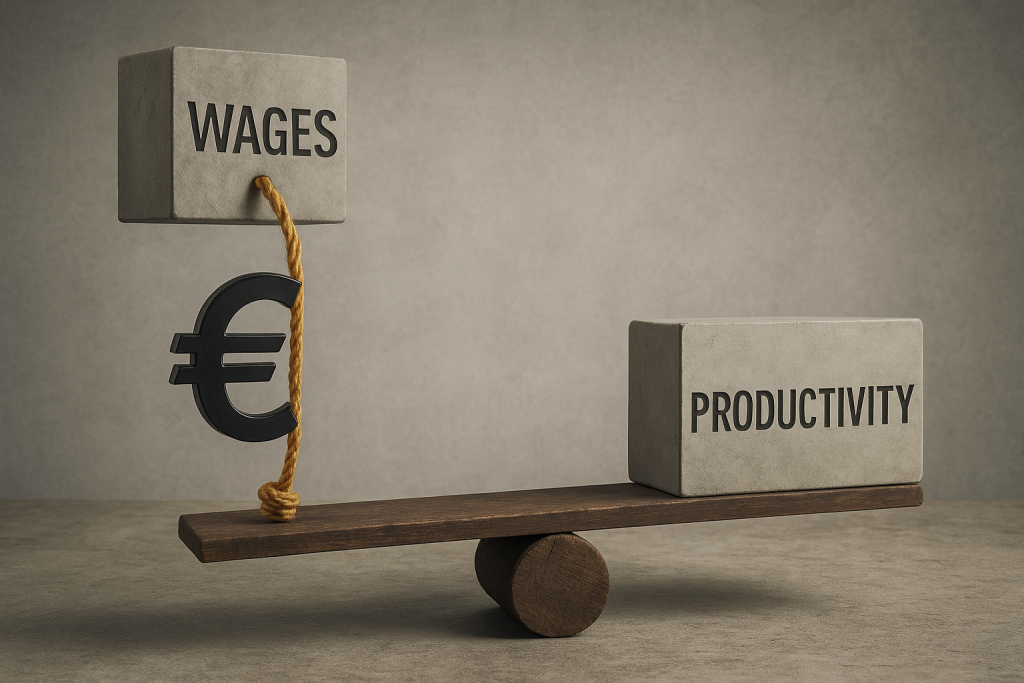
By Aktualitet.al
A rise worth watching
Starting January, Albania’s minimum wage will jump to €500, with a pledge to reach €700 by the end of the mandate. Prime Minister Edi Rama calls it a “reward for hard work” and “a step toward European standards.” Economists, however, see a more complex picture: one of political boldness, fiscal risk, and economic asymmetry.
For a country whose private sector depends on low-cost labour and high informality, the decision marks both ambition and anxiety. It is an unmistakable political statement—but one that may test the delicate balance between growth, competitiveness, and social stability.
Short-term sugar, long-term strain
In theory, higher wages mean more consumption. The government hopes that workers with fatter pay packets will spend more, propping up domestic demand. Yet Albania’s economy, heavily import-dependent, channels much of that spending abroad, not into local production.
The likely effect? A brief rise in retail activity, followed by import-led inflation and a wider trade deficit. The higher wage bill will, in turn, squeeze small firms—many already surviving on narrow margins. Once the state subsidy on insurance contributions expires in nine months, those businesses will face the full cost alone.
A patch on deep structural wounds
Officials frame the move as part of a European convergence effort—aligning with EU wage benchmarks while boosting contributions to the pension fund. In practice, the increase may inflate numbers without curing fundamentals.
Albania’s pension system remains fragile, burdened by ageing demographics and sustained emigration. A temporary rise in contributions cannot offset the exodus of the young and productive. “Flow is not solvency,” notes one Tirana-based economist.
Nor does the policy address the root causes of migration: low trust in institutions, limited career progression, and weak public services. No wage floor can compensate for the lack of rule of law or long-term opportunity.
Politics in disguise
For a government entering its fourth term, the timing is politically elegant. The pay rise reinforces a narrative of social progress, diverting attention from allegations of corruption and administrative fatigue.
It is, in effect, a symbolic dividend paid out ahead of tangible productivity growth. Populist by form, technocratic by tone—a balancing act that might buy popularity today while mortgaging stability tomorrow.
The subsidy illusion
The government’s nine-month, €90 million subsidy for private employers to cover higher insurance costs provides a soft landing. But such measures buy time, not transformation.
Unless productivity rises through training, digitalisation, or tax simplification, the post-subsidy phase could trigger layoffs, undeclared work, or price hikes. “Month ten,” says one business chamber official, “is when the math stops working.”
Europe looks, investors wait
Aligning minimum wages with EU peers makes for flattering headlines, but foreign investors are rarely seduced by parity in figures. They weigh Albania’s productivity, rule of law, and policy credibility. If costs rise faster than competitiveness, the move could deter investment in export industries—especially textiles and manufacturing, where labour costs are decisive.
The missing productivity compact
The reform could yet succeed—if backed by a coherent productivity agenda. That means:
- Lower social contributions for formalised workers beyond the nine-month window;
- Tax credits for declared employment growth;
- Training vouchers and dual education to align skills with market demand;
- And a credible enforcement regime that rewards compliance rather than punishes visibility.
Without such measures, the wage hike risks becoming another headline without foundation.
A temporary victory
Rama’s government has earned political applause for a brave announcement. But economics is rarely merciful to symbolism. The minimum wage hike, if decoupled from structural reform, could turn from a victory for workers into a burden for employers—and eventually, for the state itself.
Albania’s problem has never been the size of its paycheques. It has been the value they represent.
Raising the minimum wage is the easy part. Raising productivity, trust, and institutional depth—that’s the hard work still waiting.
